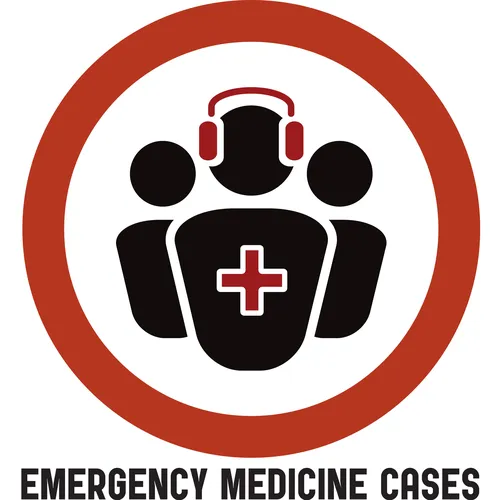EM Quick Hits 29 Vasopressor Failure, Asplenic Considerations, Bronchiolitis Update, ICD Electrical Storm, Night Shift Tips
- Author
- Dr. Anton Helman
- Published
- Tue 15 Jun 2021
- Episode Link
- https://emergencymedicinecases.com/em-quick-hits-june-2021/
Topics in this EM Quick Hits podcast
Anand Swaminathan on occult causes of non-response to vasopressors (0:54)
Brit Long & Michael Gottlieb on overwhelming post-splenectomy infection (OPSI) (7:45)
Sarah Reid on a bronchiolitis update and evolving patterns in the COVID era (12:30)
Hans Rosenberg & Lindsay Cheskes on the management of electrical storm and recurrent ICD shocks in the ED (20:43)
Justin Morgenstern on the top 10 evidence-based countermeasures for night shift workers (27:45)
Podcast production, editing and sound design by Anton Helman; voice editing by Danielle Lewis
Podcast content, written summary & blog post by Brit Long, Raymond Cho and Anton Helman
Cite this podcast as: Helman, A. Swaminathan, A. Long, B. Gottlieb, M. Reid, S. Rosenberg, H. Cheskes, L. Morgenstern, J. EM Quick Hits 29 - Vasopressor Failure, Asplenic Considerations, Bronchiolitis Update, ICD Electrical Storm, Night Shift Tips. Emergency Medicine Cases. June, 2021. https://emergencymedicinecases.com/em-quick-hits-june-2021/. Accessed [date].
Occult causes of non-response to vasopressors
* Primary therapy for hypotension is to treat the underlying cause, while initiation of vasopressors is a temporary adjunctive therapy
* Despite substantial vasopressor doses, some patients may not respond appropriately with improvements in hemodynamic parameters; failure to respond should lead to a cognitive pause and consideration of the occult causes of non-response to vasopressors.
Occult causes of non-response to vasopressors (source: REBEL EM)
Expand to view reference list
* Anand Swaminathan, "Occult Causes of Non-Response to Vasopressors", REBEL EM blog, July 13, 2017. Available at: https://rebelem.com/occult-causes-of-non-response-to-vasopressors/.
Overwhelming Post-Splenectomy Infection (OPSI)
Background
* The spleen is integral to normal immune function and overwhelming post splenectomy infection (OPSI) is a potentially deadly infection, which can appear like severe sepsis in a patient with asplenia
* The annual rate of OPSI among asplenic patients is ~0.5%
* Risk factors include young, old and splenectomies performed for hematologic disease
* The most common infections are pneumonia, urinary tract infection, bacteremia, spontaneous bacterial peritonitis, and meningitis
* S. pneumoniae is the most common microbe causing OPSI, accounting for 40-80% of infections
Clinical assessment
* Fever should be considered a medical emergency in asplenic patients
* Most patients initially present with non-specific symptoms such as fever, chills, myalgias, vomiting, and diarrhea for the first 1-2 days
* They can rapidly decompensate after this with hypotension, septic shock, and multiorgan failure
* Assess for vaccination status, reason for asplenia and source of infection
* Look for a surgical scar and Howell Jolly bodies on peripheral blood smear if their splenic status has not been confirmed
Initial Management
* While evaluating the patient, initiate broad-spectrum antibiotics
* If in shock, administer fluids and vasopressors
* Stress dose steroids may be needed if no response to vasopressors
